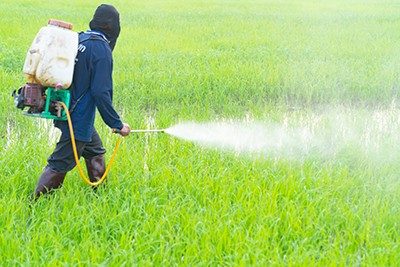FOR IMMEDIATE RELEASE
ACS News Service Weekly PressPac: March 03, 2021
Ghosts of past pesticide use can haunt organic farms for decades
“Widespread Occurrence of Pesticides in Organically Managed Agricultural Soils—the Ghost of a Conventional Agricultural Past?”
Environmental Science & Technology
Although the use of pesticides in agriculture is increasing, some farms have transitioned to organic practices and avoid applying them. But it’s uncertain whether chemicals applied to land decades ago can continue to influence the soil’s health after switching to organic management. Now, researchers reporting in ACS’ Environmental Science & Technology have identified pesticide residues at 100 Swiss farms, including all the organic fields studied, with beneficial soil microbes’ abundance negatively impacted by their occurrence.
Fungicides, herbicides and insecticides protect crops by repelling or destroying organisms that harm the plants. In contrast, organic agriculture management strategies avoid adding synthetic substances, instead relying on a presumably healthy existing soil ecosystem. However, some organic farms are operating on land treated with pesticides in the past. Yet, it’s unclear whether pesticides have a long-lasting presence in organically managed fields and what the reverberations are to soil life, specifically microbes and beneficial soil fungi, years after their application. So, Judith Riedo, Thomas Bucheli, Florian Walder, Marcel van der Heijden and colleagues wanted to examine pesticide levels and their impact on soil health on farms managed with conventional versus organic practices, as well as on farms converted to organic methods.
The researchers measured surface soil characteristics and the concentrations of 46 regularly used pesticides and their breakdown products in samples taken from 100 fields that were managed with either conventional or organic practices. Surprisingly, the researchers found pesticide residues at all of the sites, including organic farms converted more than 20 years prior. Multiple herbicides and one fungicide remained in the surface soil after the conversion to organic practices; though the total number of synthetic chemicals and their concentrations decreased significantly the longer the fields were in organic management. According to the researchers, some of the pesticides alternatively could have contaminated the organic fields by traveling through the air, water or soil from nearby conventional fields. In addition, the team observed lower microbial abundance and decreased levels of a beneficial microbe when fields had higher numbers of pesticides in the fields, suggesting that the presence of these substances can decrease soil health. The researchers say future work should examine the synergistic effects of pesticide residues and other environmental stressors on soil health.
The authors acknowledge funding from Agroscope, Swiss Federal Office for the Environment, the Swiss National Science Foundation and the National Research Program ‘Sustainable use of soil as a resource’.
###
The American Chemical Society (ACS) is a nonprofit organization chartered by the U.S. Congress. ACS’ mission is to advance the broader chemistry enterprise and its practitioners for the benefit of Earth and all its people. The Society is a global leader in promoting excellence in science education and providing access to chemistry-related information and research through its multiple research solutions, peer-reviewed journals, scientific conferences, eBooks and weekly news periodical Chemical & Engineering News. ACS journals are among the most cited, most trusted and most read within the scientific literature; however, ACS itself does not conduct chemical research. As a leader in scientific information solutions, its CAS division partners with global innovators to accelerate breakthroughs by curating, connecting and analyzing the world’s scientific knowledge. ACS’ main offices are in Washington, D.C., and Columbus, Ohio.
To automatically receive press releases from the American Chemical Society, contact newsroom@acs.org.
Note: ACS does not conduct research, but publishes and publicizes peer-reviewed scientific studies.
Media Contact
ACS Newsroom
newsroom@acs.org


